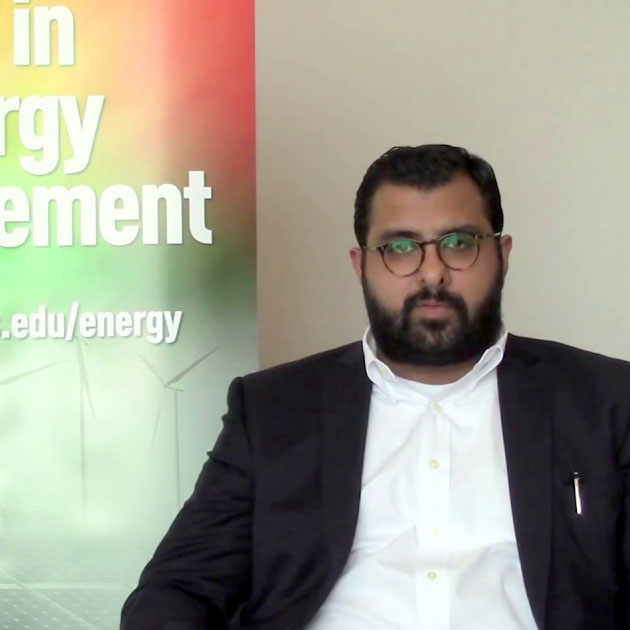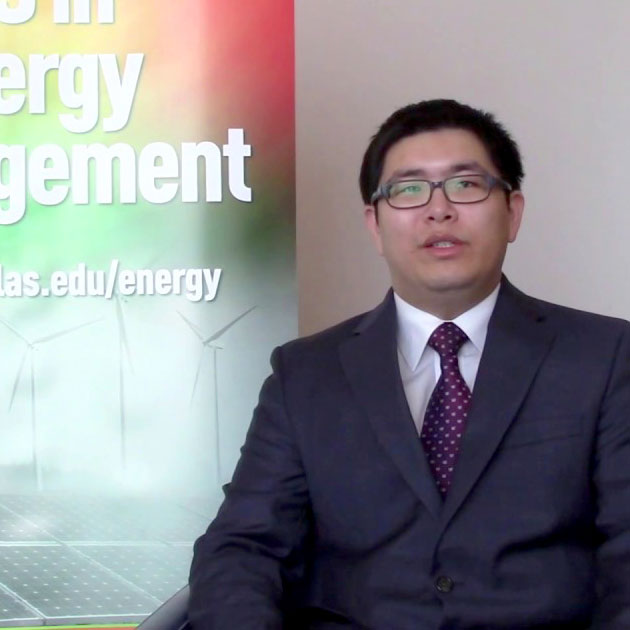Kriti Jain, Class of 2020
I came here in the fall of 2016, and the thing which attracted me most about this course was there was a mix of energy subjects along with business core subjects. And that gave an overall good kind of exposure, to us, to the students, because during the lectures, we had guest lectures, we actually started from viewing contracts. And instead of focusing on textbooks, which is not really a very practical way of learning courses, we went out for site visits.
We saw solar plants and coal plants, and we got lectures from people inside. And you got a very good idea about how they run and a very practical approach, which was very important.
Visiting Solar and Coal Plants
We saw solar plants and coal plants, and we got lectures from people inside. And you got a very good idea about how they run and a very practical approach, which was very important. And Texas, being an energy hub, gave us the perfect opportunity for this course to be structured in a way they could meet industry professionals and get guest lectures from them, and interact with them on a day-to-day basis.
And during this course we have an Energy Association, which is a student-run organization which focuses mainly on getting energy professionals to our college and kind of getting students to learn about it and giving a good perspective on what’s going on, what are the trends, and what we can work on, and good internship opportunities for the students as well.
So these lectures along with the whole learning during this course gave me a very good opportunity. And I got two internships during this course, and that gave me a practical exposure to this text materials which we were studying in class, and I would say that overall it led to a very good experience for me; so yeah.
Person behind camera: Let me ask you a question. There quite a few Indian students here at the University, especially in the energy management classes. What attracts Indian students to energy management?
Kriti: I guess like I mentioned the Texas energy hub, here, and we have a mix of everything not just you know a particular, not just solar or wind. We have natural gas. We have oil; we have — we can actually study all the different aspects of energy and not just focus on one part of it. So that I guess that is something which we won’t really get of a specialized course in India. So here, we got an opportunity to study all the various aspects of the energy sector in one degree, which was a very good thing.
Person behind camera: OK, what about job prospects? Are you going to have success when you get out of here next week?
Kriti: (laughs) Yeah, I mean I’m I’m working on different interviews in the energy sector — particularly solar, because that is the field I am passionate about. And definitely, learning from my courses like we’ve had modeling classes, we’ve had finance classes, contract classes. We have a lot of different classes ,which have given me a very good exposure of how, like during my internships, I actually learned and how I could perform, and those were practical experiences, which I will always be cherishing.
Person behind camera: What about the internship program?
Kriti: The internship program… We get mentors, and you have to kind of report back to them about internship credits, and that is a very good way because that at least helps us track our progress in the internship. And not only … because we do actually have to track and give reports and kind of say that “OK, this is what we learned over all through the period of internship.” And that gives us a good experience, I would say.
Person behind camera: Well, thanks a lot and good luck next week.
Kriti: Thank you so much!



